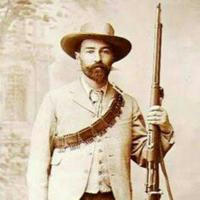
South African Foreign Corps
Forging a future for South Africa together with brother's of the world. News and information on whites in South Africa.
Show moreThe country is not specifiedEnglish101 902The category is not specified
666
Subscribers
No data24 hours
+27 days
+130 days
- Subscribers
- Post coverage
- ER - engagement ratio
Data loading in progress...
Subscriber growth rate
Data loading in progress...
03:48
Video unavailableShow in Telegram
Eugene Terre'Blanche's Afrikaner Resistance Movement - Rally
11.47 MB
Nicol believed in teaching education in the person's mother tongue and said any education taught in a second language would hinder a person's growth and learning ability. Thus he also helped translate the Bible with help from African religious leaders into Zulu. He opposed the National Party's Bantu Education and suggested a model with learning in the mother tongue with English as a second language so that people could all communicate.
In 1906, he obtained his bachelor's degree at Stellenbosch University and then studied at the Free University of Amsterdam and Princeton. From 1913 to 1938 he was a minister of the Dutch Reformed Church in Johannesburg East, called Irene Church. In June 1938, he became a minister in Pretoria East. From 1934 to 1948 he was the moderator of the Dutch Reformed Synod of the Transvaal. In Johannesburg, he was a champion for the recognition of the Afrikaans language and the establishment of Afrikaans-medium schools.
Nicol was the founder of Johannesburg East's parish magazine, Irenenuus, in January 1923, that he wanted the members in their particular situation escorted to their faith. It was written in Afrikaans in a time when the language just started gaining a foothold in schools and was rarely heard from the pulpit. Nicol in August 1923 (date uncertain) made history when he wrote the first sermon in Afrikaans broadcast on the radio directly into the radio studios in downtown Johannesburg. At 9:45 on Sunday, 7 June 1924, the minister and church made history when full service was held in Afrikaans for the first time. He also broadcast on the Union broadcast and from Irene Hall. A month later, on 4 October 1925, the first communion service was broadcast from Irene Hall led by Nicol. He was chairman of the Afrikaner Broederbond from 1924-1925.
William Nicol (Transvaal)
Rev Dr. William Nicol (23 March 1887, in Robertson – 22 June 1967) was a Dutch Reformed minister, theologian, educator and Administrator of the Transvaal Province of South Africa.
On 1 November 1948 he was elected as the administrator of Transvaal and ten years later his work, especially with regard to education and culture, continued to grow. He retired on 1 October 1958.
Repost from Red Door Reports
Swazi king, Mswati III: Mpumalanga land was legally given to Voortrekkers - South Africa Today
https://southafricatoday.net/south-africa-news/mpumalanga/swazi-king-gave-land-in-mpumalanga-to-voortrekkers-mswati-iii/
Swazi king, Mswati III: Mpumalanga land was legally given to Voortrekkers - South Africa Today
The land in the area known as Mpumalanga today was not stolen or unlawfully taken from anyone, the Voortrekkers obtained the land legally from the then Swazi king by means of bartering with, among other things, livestock. The Swazi king, Mswati III, confirmed this yesterday, 2 August 2018, during talks between the king and a […]
In the meanwhile the far-right in the Afrikaner Volksfront forced the Afrikaner Volksfront to boycott the general elections at 27 April 1994. At 26 February 1994 this leads to a rupture in the Afrikaner Volksfront, that consisted of an alliance between hardliners that did not want general (multi racial) election and moderates that want to establish a volkstaat before a general elections was held. The moderate Volkstaters led by general Constand Viljoen left the Afrikaner Volksfront and established their own party: the Freedom Front.
Background
During the negotiations between the South African (apartheid) government and the African National Congress to create a new democratic South Africa there was a lot of resistance among conservative Afrikaners. Their main political party - the Conservative Party - did not want the Afrikaners to lose political power in South Africa. In 1992 the South African government decided to call an end-of-apartheid referendum with the question whether the negotiations with the ANC and other parties for a new constitution should continue. During the campaign the National Party-led government swore that it would never accept a proportional electoral system, because this would mean that white minority (12% of the population) should lose all power to the black majority (74% of the population). The NP would only accept a form of power sharing. Ultimately, 68,7% of the white voters voted in favour for the continue of the negotiations.
Choose a Different Plan
Your current plan allows analytics for only 5 channels. To get more, please choose a different plan.
